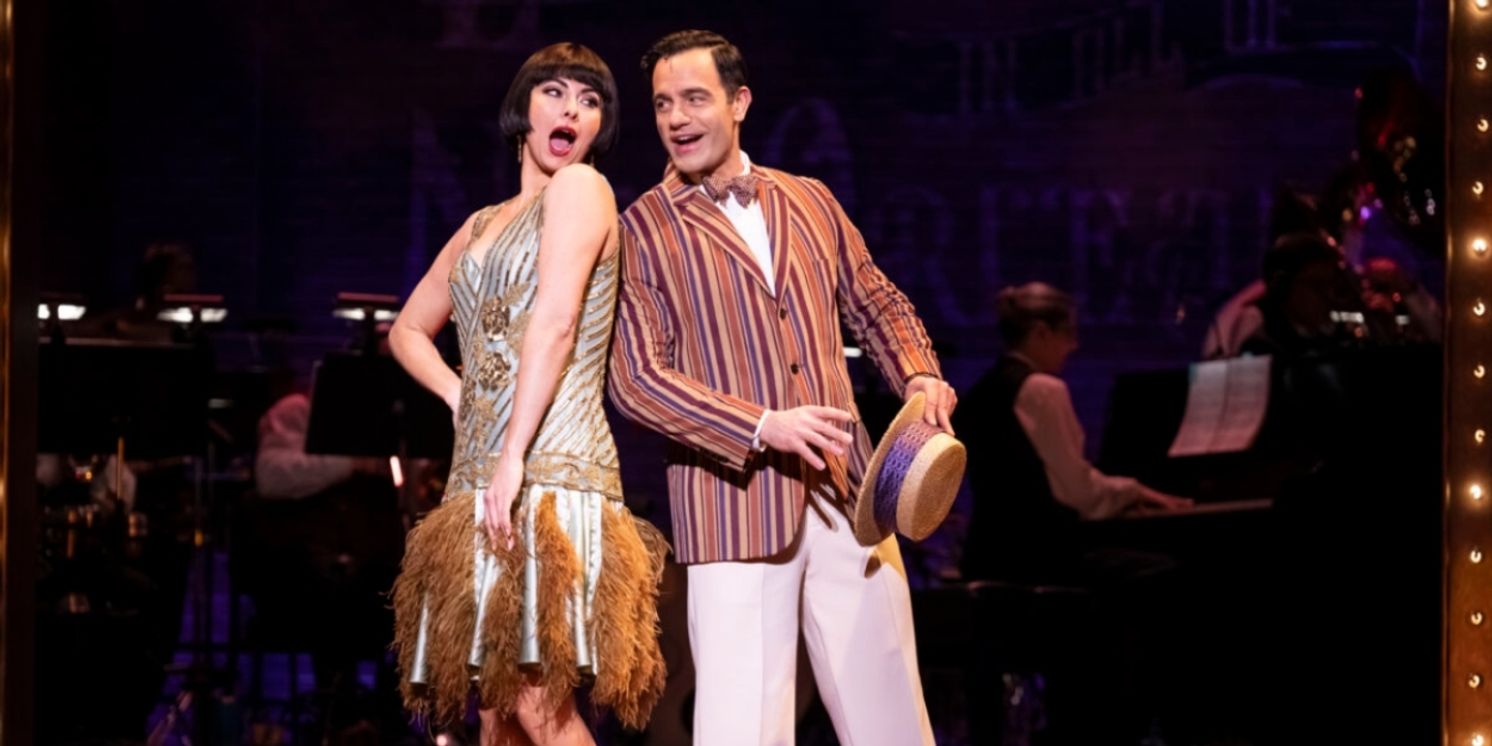Review: SONGBIRD at Kennedy Center
Washington National Opera takes Offenbach's "La Périchole" to New Orleans

There’s an awful lot of death in opera, Timothy O’Leary, the general director of Washington National Opera, lamented on a recent opening night. And those plentiful tragedies are also often further burdened with overbearing scores, turgid storylines, super-large casts and strident if not shrill performances.
That’s why it’s fun sometimes to turn to something light from Offenbach, and make it even more delectable by relocating it to, say, New Orleans.
The Washington National Opera’s “Songbird,” a reimagining of Jacques Offenbach’s 1868 “La Périchole,” is a delight for these reasons, but even more so for the lead voices, the dazzling mezzo-soprano Isabel Leonard in the title role and Ramon Karimloo, the Broadway star from “Funny Girl,” and Tony nominee for “Les Misérables.”
His opera bona fides are largely from “The Phantom of..” in which he starred on London’s West End, and in its sequel and its 25th anniversary event. So he (and the rest of the cast) are miked up in the traditions of musicals, which apparently is a sin in opera, but it provides for a more naturalistic delivery and a bit of room for nuance.
Besides a fine (if not strident) voice, Karimloo brings comic chops and acting ability, which go a long way in opera, where acting is not always the chief concern. Together he and Leonard, a past “Carmen” at WNO, make a fine pair such that it’s no wonder that everyone in a 1920s New Orleans speakeasy takes note when they show up looking for jobs.
The “Songbird” story — adapted from Offenbach’s already shaky narrative — involves the scheming of a local mayor who wants to cage this Songbird for himself, but to do so must be assured she’s married to somebody, anybody lest people presume anything insidious about havting a single woman in his house.
The mayor, who is also owner of the speakeasy (an entertainingly over the top baritone Edward Nelson) — gets a pair of flunkies (baritone Jonathan Patton and tenor Sahel Salam) to round up somebody, anybody to wed the woman and of course they find Karimloo’s down-and-out Piquillo, devastated that his Songbird has flown, after accepting an invitation to dine with the mayor.
They’re both starving, after all and Piquillo accepts payment to go through the sham wedding so he can eat, too. Mostly, though, they seem to drink instead. So much that that when they’re shoved together, they don’t immediately recognize each other.
This is where the story, wholly borrowed from “La Périchole” seems to break down. Are they really so drunk so as to not identify one another? They certainly don’t seem drunk. Because of the focus on their fine voices, they can never quite slur their words.
Or maybe we shouldn’t worry about all this in the first place. We witness the mistaken identity with smiles because of the music and the performances, mixed with the sumptuous presentation.
James Lowe, who orchestrated and arranged “The Songbird,” is also the conductor of a modest sized New Orleans-style jazz band that is rightfully on stage — smaller than the usual Washington National Opera Orchestra certainly, but slightly larger than with the piece premiered at the Glimmerglass Festival in 2021, adding a sousaphone and Chicago jazz pianist in Ann Dougherty.
The aim was a hot jazz combo circa the 1920s (and less the Dixieland style often associated with the Crescent City). And aside from the musical overture, it doesn’t break through as a jazz music showcase. Rather, the alluring Offenbach melodies are presented in a manner that seems fresh and open — never heavy — allowing vocalists to shine even more clearly.
Kelley Rourke’s adaptation of the libretto also serves as largely a translation to English, but often she retains the French of Offenbach’s original where it better serves the rhyme, joke or melody. After all, it is New Orleans, where Creole culture accepts both languages (the supertitles keep up with both).
The adaptation is credited to Lowe, Rourke and director Eric Sean Fogel, who as a choreographer for most of his career, adds some splendid ensemble pieces, a bit of tap dancing and zippy moves owing to flickering silent film comedies of the era. His co-director at Glimmerglass has was Francesca Zambello, the WNO artistic director, making the road to the Kennedy Center clear.
The dances, and the rest of the production are enhanced by sumptuous jazz age costumes from Marsha Leboeuf and Tim Burrow (Christelle Matou did the original costume designs). They’re lovely to see, even if they sometimes are at odds with the narrative (this is the best dressed starving couple you’ll ever see).
The pandemic’s effect on the original Glimmerglass “Songbird” meant that it premiered outside, on the grass of upstate New York, using just a few tables and chairs for the set (and the small orchestra was devised in part to keep musicians socially distanced).
The current post-pandemic production, then, allows for a full eye-catching speakeasy set from James F. Rotondo III. The other pandemic remnant that survives is the lack of an intermission, so that the much truncated former three-act seems to zip by as breezily as one of the production's melodies.
Running time: About 85 minutes, no intermission.
Photo credit: Isabel Leonard and Ramon Karimloo in “Songbird.” Photo by Scott Suchman.
“Songbird,” presented by the Washington National Opera, continues through March 24 at the Kennedy Center for the Performing Arts, 2700 F St NW. Tickets at 202-467-4600 or online.
Reader Reviews
Videos

